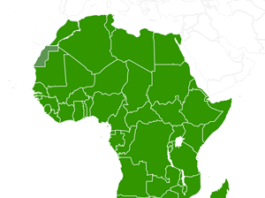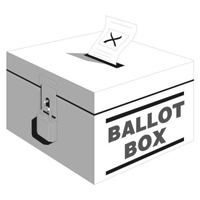How Whites Continue to Hold Major Advantages in College President Searches
A new report prepared by Bensimons & Associates for the California Futures Foundation finds that whiteness "is embedded at every stage of presidential search and selection processes. The racial-ethnic and gender makeup of the presidents of California's public colleges and universities are much the same as in the 1970s: almost exclusively white and male."
Study Finds a Huge Advantage in Appraisal Values for Homes in White Neighborhoods
A new study from sociologists at the University of Illinois at Chicago and Washington University in St. Louis finds that homes today in White neighborhoods are appraised at double the value of comparable homes in communities of color. This represents a 75 percent increase in neighborhood racial inequality in home values over the last decade.
Vast Racial Differences in the Financing of Doctoral Education
Only 19.4 percent of all African Americans who earned doctorates in 2021 had no education-related debt when they earned their terminal degree. For Whites, 51.7 percent had no education-related debt. The median education debt for Whites was $45,000. African Americans who earned doctorates in 2021, had an average student debt of $110,000.
The Very Wide Racial Gap in College Graduation Rates
New data from the U.S. Department of Education shows that nearly 68 percent of all White students entering four-year colleges seeking a bachelor's degree in 2015 had graduated within six years. But only 45.7 percent of Black students had earned a bachelor's degree within six years. The racial gap was even larger at price, not-for-profit colleges and universities.
Study Finds Black Medical Students Publish Less Scholarly Research Than Their White Peers
In a new study of medical school students, researchers at Yale University found that there were only slight differences between Whites and members of underrepresented groups in research experience. But Black medical school students had 15 percent fewer publications than their White peers.
Academic Disciplines Where African Americans Received Few or No Doctorates in 2021
African Americans earned only 1.4 percent of all doctorates awarded in mathematics and 1.2 percent of all doctorates in physics that were awarded to U.S. citizens and permanent residents in 2021. Blacks earned 4 percent of all doctorates in computer science, 4 percent of all doctorates in chemistry, and only 4.1 percent of all doctorates awarded in engineering disciplines.
The Persisting Racial Gap in Scores on the SAT College Entrance Examination
The results showed that only 19 percent of African American test takers met the college and career readiness benchmark for both reading and mathematics, the lowest level of any racial or ethnic group. Some 53 percent of Whites met the readiness benchmarks in both reading and mathematics. Some 54 percent of all Black test takers did not meet the minimum benchmark in either reading or mathematics. For Whites, the figure was 21 percent.
College-Educated Black Women Have Fewer Children Than Their White Peers
Overall, they found that college-educated women across racial and ethnic groups have fewer children than those who did not graduate college. The difference in fertility between college-educated Black and White women is driven mainly by the smaller proportion of Black mothers giving birth to a second child, the study found.
Scores on the ACT College Entrance Examination Drop and Large Racial Gap Persists
For the fifth year in a row, the average score for African American students dropped. The most striking statistic is that only 5 percent of all Black test takers were rated ready for college-level courses in all four areas of English, mathematics, science, and reading. Whites were nearly six times as likely as Blacks to be prepared for college-level work in all four areas.
In African American Doctoral Awards, Women Gained and Men Saw a Drop in 2021
Of the 2,431 African Americans who earned doctorates from U.S. universities in 2021, 1,552 were women. Thus, women earned 63.8 percent of all doctorates awarded to African Americans in 2021. This is up from 62.3 percent in 2020. The number of African American men who earned doctorates in 2021 was the lowest number since 2017.
Black Enrollments in Higher Education Are Down But Not as Much as White Enrollments
A new report from the National Student Clearinghouse Research Center finds that Black enrollments are down by 1.6 percent this fall compared to a year ago. White enrollments have dropped by 3.6 percent. Since 2020, Black enrollments have declined by 6.9 percent compared to 9.6 percent for Whites.
Black Medical Students Are Less Likely Than Their White Peers to Be Selected for...
The study, led by scholars at the Yale School of Medicine, found that the least likely to be placed in graduate medical education residency programs were Black or African American and Hispanic male students. Black female students and Hispanic female students also had much higher rates of not placing compared to White students.
Are State Licensing Exams Unfairly Keeping Blacks From the Teacher Workforce?
A new study by Alexander Cuenca, an associate professor in the School of Education at Indiana University, finds that the state licensing examination has the effect of shrinking the pool of nonwhite educators that enter the profession even as the K-12 student population grows more diverse.
What Would Have Been the Most Effective Strategy for the COVID-19 Vaccination Rollout?
Using a supercomputer, researchers analyzed 2.9 million vaccination rollout strategies to determine what would have produced the lowest rates of infection and death. They found that prioritizing vaccine rollouts to people of color, particularly older African Americans may have been the best strategy.
How Introductory STEM Courses Weed Out Blacks and Other Underrepresented Students
Researchers found the association between low performance in an introductory STEM class and failure to obtain a STEM degree is stronger for Black and other underrepresented minority students than for other students, even after controlling for academic preparation in high school and intent to obtain a STEM degree.
Public School Students With Teachers Educated at HBCUs Do Better at Mathematics
A new study by Lavar Edmonds, a graduate student in the economics of education at Stanford University, finds that both Black and White HBCU-trained teachers in North Carolina Public schools are more effective with Black students in mathematics than their same-race, non-HBCU peers.
Racial Differences in How Recent College Graduates Fared During the Pandemic
For 2015-16 college graduates, 22.5 percent of African Americans reported that they had difficulty meeting essential expenses during the pandemic, compared to only 8.4 percent of Whites who graduated from college that year. Some 21 percent of African American college graduates said they delayed additional educational training due to the pandemic. This was more than double the rate for Whites.
The Status of Black Students at Community Colleges in the United States
A new report from the Joint Center for Political and Economic Studies in Washington, D.C., finds that while Black students are disproportionately represented at community colleges, the system does not produce equitable outcomes.
Bloomberg Philanthropies’ New Research Tool Examines the Racial Wealth Gap
Visitors to the site can use the Racial Wealth Equity Database to interact with wealth data by topic (assets/debt, education, employment, homeownership, and business ownership), and compare wealth data by race, sex, age, education attainment, and geographic area (state, county or zip code).
Ohio State Project to Digitally Recreate Black Neighborhoods Lost During Highway Construction
The building of the interstate highway system in Columbus split and sometimes destroyed entire neighborhoods, mostly those housing African Americans, immigrants, and other minorities. Now a team of researchers is working to digitally recreate these “ghost neighborhoods” in 3D so that people can see, and researchers can study, what was lost.
The Persistent Black-White Poverty Gap Hinders African American Access to Higher Education
In 2021, 18.1 percent of all Black families were living in poverty. For non-Hispanic White families, only 5.7 percent were living below the poverty threshold. The Black-White family poverty rate gap where African American families are about three times as likely to be poor as White families, has remained virtually unchanged for more than a half century.
Blacks Are Vastly Overrepresented in the Long-Term Prison Population
A new study by The Sentencing Project finds that In 2019, Black Americans represented 14 percent of the total U.S. population, 33 percent of the total prison population, and 46 percent of the prison population who had already served at least 10 years.
Study Finds Hiring a Black CEO Can Boost a Firm’s Stock Price
The study suggests that Black CEOs face a higher bar for advancement than White CEOs as they climb the corporate ladder, resulting in Black CEOs being that much more prepared to lead the firm. The analysis suggests that firms seemingly appoint Black CEOs only when they are excessively qualified.
The Racial Income Gap Narrowed in 2021, But There is Still a Long Way...
Both Blacks and Whites saw a slight rebound in their median incomes in an economy ravaged by the global pandemic the year before. However, with only minor fluctuations, the racial gap in median income has remained virtually unchanged for more than a half-century.
How the Pandemic Made the Student Loan Debt Crisis Even More Difficult for Black...
The findings of a new report from the Center for Responsible Lending indicate that the widespread disruption in employment due to the pandemic has had a profound impact on women, their families, and their finances. Despite demonstrating immense resiliency, the worst outcomes have disproportionately harmed women of color.
Rutgers University Research Provides a Snapshot of the Backgrounds of HBCU Presidents
The report found that 72 percent of HBCU presidents were serving for the first time as CEO in higher education. More than three-fifths of HBCU presidents earned their undergraduate degrees at an HBCU. Only 11 percent of HBCU presidents hold a doctoral degree from an HBCU.
White Patients’ Reactions to Treatment Can Be Impacted by the Race of Their Healthcare...
A new study by researchers at Stanford University, the University of Washington, and the University of Zurich in Switzerland finds that the bodies of patients who were given placeboes reacted to the treatment differently depending on the race of the healthcare provider.
Study Finds Black-Owned Restaurants Had a Larger Drop in Business During the Pandemic
The authors speculate that "the costs of staying open and continuing to offer dine-in services during the first few months, the loss of employees due to virus infection and the depletion of financial reserves, made the Black-owned restaurants less competitive than those that had better flexibility in reacting to the pandemic."
How Higher Education Contributes to Occupational Segregation by Race in the United States
In 2017, only 10 percent of Black students, who originally declared a computer sciences field of study graduated with a computer sciences degree. In contrast, nearly 29 percent of White students whose original field of study was computer sciences graduated with a computer sciences degree.
Huge Dataset of Voting Records Show Significant Racial Gap in Turnout Rates
Researchers at the University of Virginia and Brigham Young University analyzed 400 million voter records and found that minority citizens, young people, and those who support the Democratic Party are much less likely to vote than Whites, older citizens, and Republican Party supporters. Moreover, those in the former groups are also more likely to live in areas where their neighbors are less likely to vote.
The Undergraduate Institutions That Produce the Most Black Doctoral Degree Recipients
From 2010 to 2020, nearly 22,000 Blacks earned doctorates from U.S. colleges and universities. The new NSF report finds that Howard University in Washington, D.C., produced the most undergraduates that went on to earn a doctoral degree during the period with a total of 403. More than one quarter of all Blacks who went on to earn doctorates were graduates of HBCUs.
The Burden of Student Loan Debt Impacts the Mental Health of Many African Americans
Black students are more likely to borrow, borrow more, and are more likely to struggle with repayment than their White peers. Twelve years after starting college, the typical Black borrower owes 13 percent more than they originally borrowed and has paid down none of their balance, while the typical White borrower has successfully paid down 35 percent of their original loan balance.
Exposure to Lead-Based Paint Is Still Impacting the Racial Gap in Educational Progress
Lead-based paint was banned in the United States in 1978. But people who live in the nation's older housing stock - primarily those in impoverished urban areas still are at high risk of exposure to lead-based paint. Studies have shown that exposure to lead can have a significant negative impact on the cognitive abilities of young children.
Why HBCU Medical Schools May Be Better for Aspiring Black Physicians
A new study by researchers at Harvard Medical School, the University of Central Arkansas, and Northwestern University, finds that Black medical students attending historically Black medical schools report a greater sense of belonging and greater confidence in their scholastic abilities than those in predominantly White medical schools.
New Report Examines The Disparate Impact of COVID-19 on Student Loan Debt for Blacks
A new study by the Center for Responsible Lending finds that women carry about two-thirds of the $1.7 trillion of federal student loan debt and Black women are more than twice as likely as White men to owe more than $50,000 in undergraduate student loan debt.
Study Finds Little Progress for African Americans in Academic Radiology
In academic radiology in 2019, Blacks were 3 percent of the assistant professors and 2 percent of the associate professors and full professors. The proportion of Black or African American department chairs was 5 percent in 2019. These percentages have not changed significantly since 2010.





























